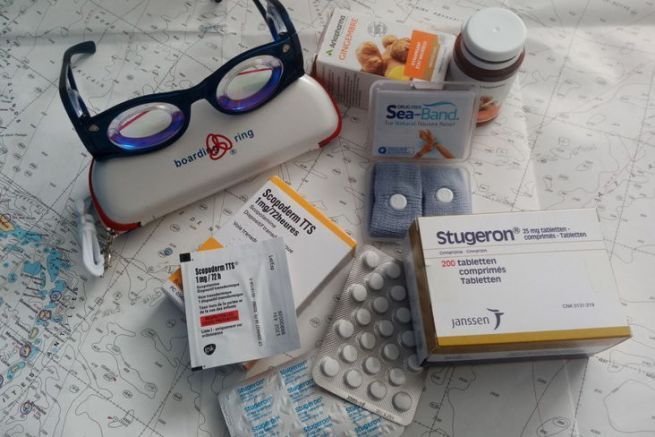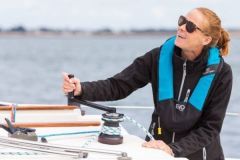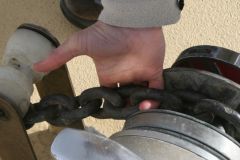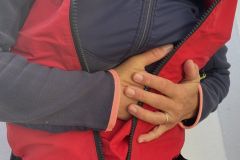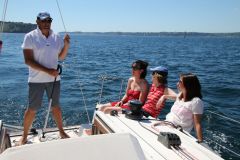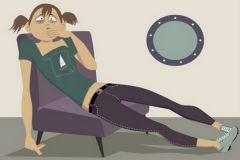Preparing for a cruise means anticipating the worst, being prepared to face it. Health and medicine are key elements which, if well understood before departure, will be reassuring and calming in the way we approach our presence at sea.
an offer based on the 240 division
Medidistance is a structure that offers to boaters to leave in medical safety, both in terms of staffing and training. The bags " Ready to embark "not only include everything that the regulations require us to do so, but also everything that the medical experience of the structure's professionals has identified as useful or essential on a cruise: equipment, medication or care utensils. The bags themselves are designed to be used offshore, waterproof and organized to optimize the management of expiration dates. This bag is also designed to save space (often critical on board a boat). Finally, their design is constantly evolving, based on user feedback and comments.
Three models of bags are available depending on the use
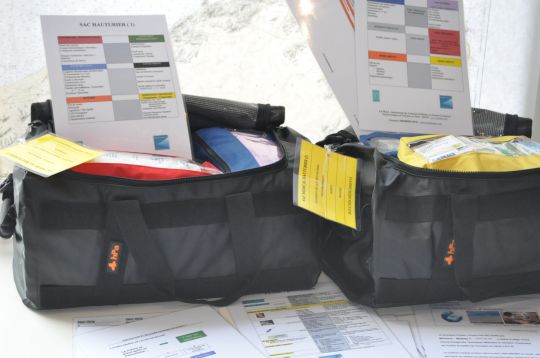
Dr. Delire, President of the association, explains " There are 3 different models of bags. The light version, adapted to a coastal navigation. The deep-sea version will allow you to sail for a few days, for example a crossing to Corsica or England. The Oceanic version, finally, contains everything that may be necessary for a long-distance cruise. This includes everything from bandages to scalpels to throat lozenges. The idea of these bags is that the yachtsman has at his disposal what the CCMM of Toulouse recommends and that the names of the medicines are standardized in order to make the response of our colleagues as reliable and efficient as possible. "
The size of the bags, their number and their composition are adapted according to the program and the crew.
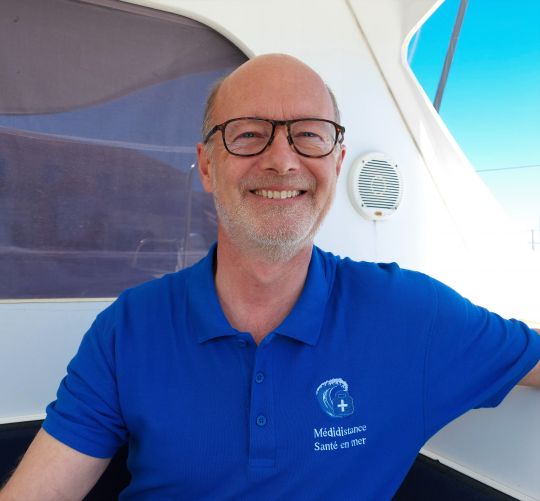
A medical training offer for the cruise
The association also offers training for those who embark: Grande Croisière Medical Training. The training course has three different levels:
- Grand Large (1 day, 200 euros)
- Oceanic (2 days in person, 325 euros)
- Oceanic + (4 remote sessions + 2 days of practical training in person, 395 euros)
The proposed training courses are held in La Grande-Motte, in the south of France.
Medidistance is a non-profit association created in 2007. It is made up of professionals (anaesthetists, nurses...) who are all experienced in cruising. The objective of this structure is to improve health at sea and to prepare non-professional sailors to health both at sea and in port.
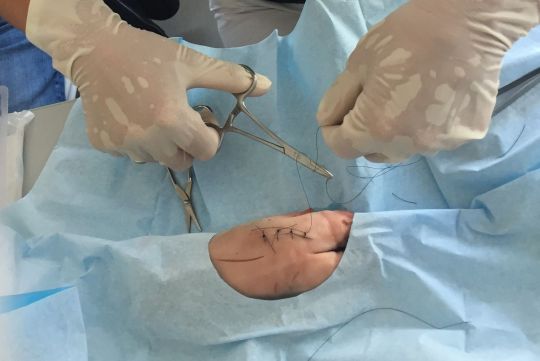
A legacy of ocean racing training
Initially designed for Vendée Globe competitors, this training program has been adapted to be accessible to all, whether they are solo sailors or traveling as a couple or family. It includes a purely medical component, as well as an approach to care and management. Whether it is a question of deciding when to call for help, how to prevent "stupid" accidents (jellyfish stings, sprains or even burns) or how to set up a care plan for an injured person or an accident victim, the proposed training will meet the expectations of yachtsmen.
Beyond health at sea, it is also the question of health at port of call that is addressed, whereas training intended for competitors most often ignores this point which does not concern them directly.
The Medidistance website also offers useful information about remote health, vaccination, medical insurance. The Facebook page offers the opportunity to chat with former students to perfect the skills acquired during the session.
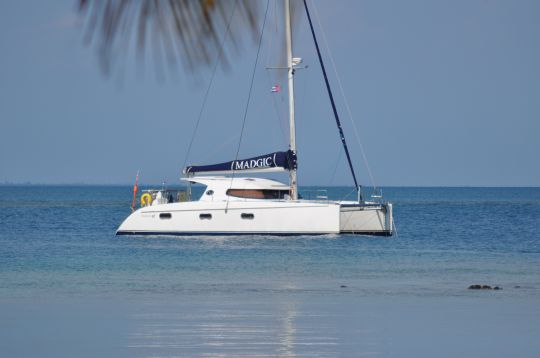
Follow-up offer to be developed
If the idea is interesting, it requires from the volunteer boaters to be prepared in advance and to have a good first level of training. The location of the training courses, in the south of France and in Paris, is a second handicap which could increase the cost of the training, for reasons of travel and accommodation.
There is a risk that the yachtsman, with his training and his bag, falls asleep on these achievements and never questions what he has learned, sometimes many years earlier. This is why we would have liked a follow-up system.
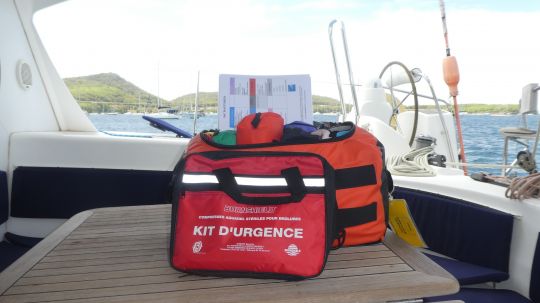
Follow-up of the trained persons who, fortunately, will never have to apply the learned gestures and " will lose the hand " on the one hand. On the other hand, that the medical bags purchased by boaters are also tracked ( expiration dates of on-board medications, for example ) and that an offer of " keeping up to date The "health weapon" is available.
Finally, an offer of localized bags according to the destinations would seem to us a good idea, the dangers ( at sea and on land ) will be very different depending on whether you are sailing in the China Sea or in the Antarctic. But Medidistance indicates that it follows the feedback of their users...

 /
/ 